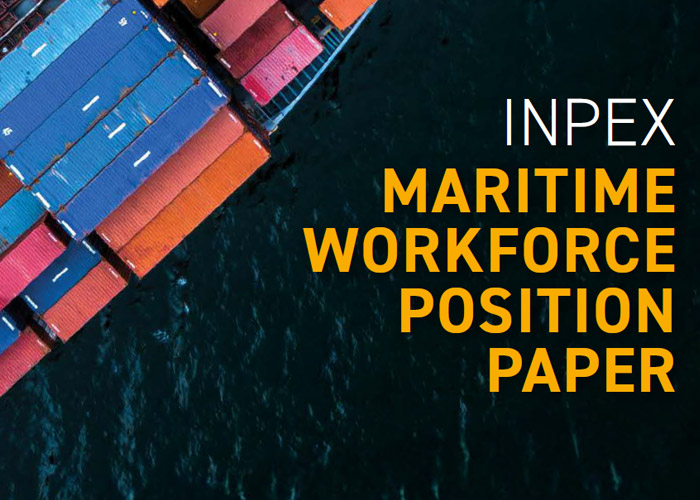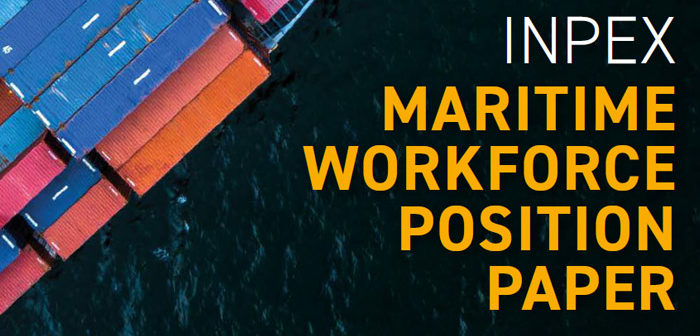
A new report has found that a critical shortage of seafarers threatens Australia’s energy security, national defence and supply chain resilience, requiring an urgent overhaul of maritime skills and training.
Released this week, the Maritime Workforce Position Paper was commissioned by energy exploration and production company INPEX and supported by the Australian Resources & Energy Employer Association (AREEA), Maritime Industry Australia Limited (MIAL), the Australian Institute of Marine and Power Engineers (AIMPE), the Australian Maritime Officers Union (AMOU), and the Maritime Union of Australia (MUA).
The paper reveals a major shortage of seafarers with the internationally recognised qualifications required to service strategically significant Australian maritime assets. It also found that an ageing current workforce is desperately in need of regeneration and that there is a major funding shortfall for maritime skills training to meet the jobs gap.
These factors were identified as long ago as the 2013 Australian Maritime Workforce Development Strategy. Globally, the industry predicts a need for up to 89,510 additional officers by 2026, a challenge magnified by the pandemic.
“We’re now seeing the demand for seafarers outstripping supply in circumstances approaching a flashpoint,” said INPEX Australia Senior Corporate Vice President Bill Townsend. “This is a result of limited action in the past decade to ensure the training and crewing sustainability of the Australian shipping fleet.”
Townsend said the shortfall directly impacted the maritime workforce’s capacity to meet the expansion and maintenance of Australia’s offshore oil and gas sector. He adds that as Australia’s energy mix continues to diversify, there will be a severe shortage of maritime workers to support offshore windfarms and to carry out decommissioning work.
The report identifies poor training pathways as central to the nation’s inability to develop the maritime workforce needed. It calls for a whole-of-government response and funding package from the Commonwealth to address proven pinch points in maritime education, training and retention, streamlining the complexity of current pathways and assisting with heavy costs stifling the pipeline of ratings, engineers, and officers.
The Maritime Workforce Position Paper recommends four immediate actions to rectify current maritime workforce shortages, with two further recommendations over the next three to five years to ensure national resilience is not compromised.
-
Secure funding for retention, training and education in maritime workforce roles. Reduce or subsidise RTO fees, provide workforce support program;
-
Launch a targeted recruitment campaign to inspire and attract people with transferable skills into areas of maritime workforce demand;
-
Expand the talent pool by making existing STEM and technical vocation incentive programs available to people studying maritime qualifications;
-
Make seagoing berths available on all vessels controlled under Government and Government-related contracts;
-
Standardise education, training and career pathways through establishing a national maritime training coalition with appropriate geographic distribution that facilitates effective maritime workforce development outcomes (three to five-year action); and
-
Invest in technology and instructors to support skills acquisition, development, and deployment for the maritime sector (three to five-year action).
“We’re facing an environment where the commercial maritime industry is experiencing a chronic workforce shortage, and demand for seafarers through the strategic fleet initiative, oil and gas decommissioning and the development of offshore wind projects will only increase,” said AREEA Deputy CEO Tara Diamond. “The Australian Government can and should be part of the solution. Without such a response, the recently announced overhaul of the navy’s surface combatant fleet, including 11 additional new multipurpose frigates, will inject further strain.”
“Maritime skills are integral to an island nation such as Australia, with its vast resources and maritime infrastructure,” added MUA National Secretary Paddy Crumlin. “Australia cannot risk reliance on overseas maritime skills in an increasingly polarised and unstable geopolitical environment. We must immediately address the current and future maritime skills gap identified by industry in this report.”
You can read the full report here.






